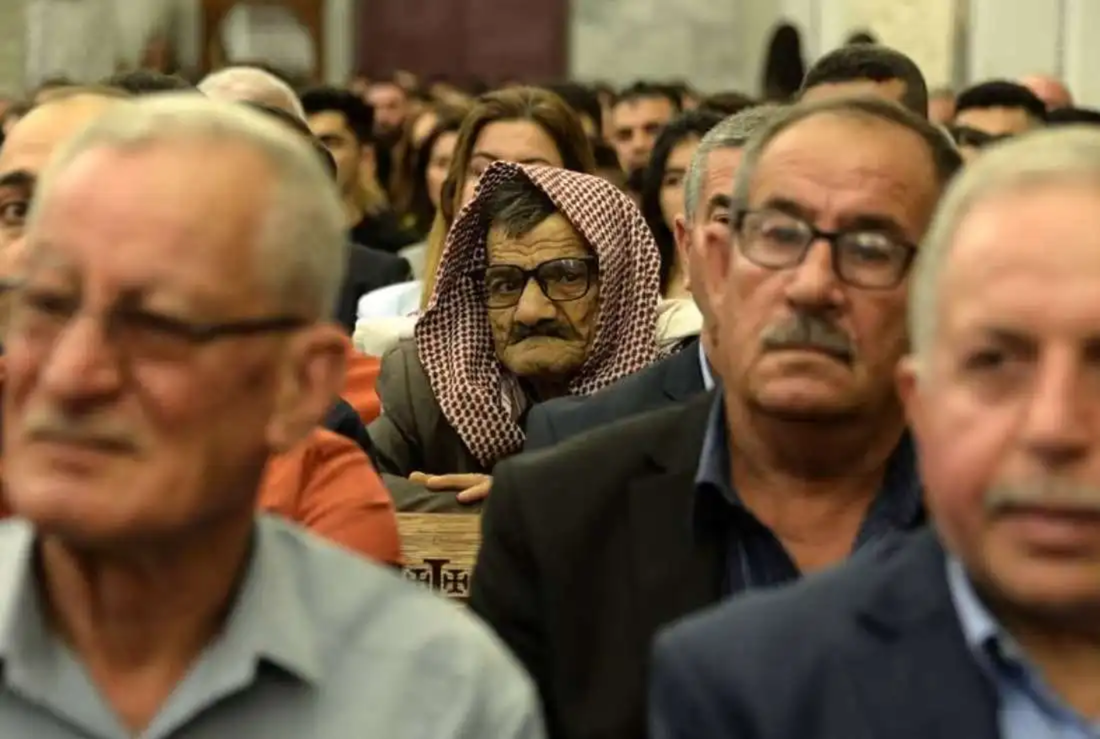Christian leaders and activists from five political parties have jointly issued a statement over large-scale real estate operations in the Christian stronghold of the Nineveh Plains, saying the move aims to change the demography and threaten the Christian heritage of the region.
Five political groups – the Assyrian Democratic Movement (Zowaa), the National Union of Beth Nahrain, the Abnaa al-Nahrain Party, the Assyrian National Party, and the Chaldean-Assyrian-Syriac Popular Council signed the document to denounce the plan for the Governorate of Nineveh, Fides news agency reported on June 21.
The region is a traditional home of various races and religions, especially Christian-majority Chaldean, Assyrian, and Syriac communities belonging to different churches.
A major Christian political party "the Babylon Movement," which controls four of the five seats reserved for Christian deputies in the Iraqi parliament, did not endorse the document.
The statement said the groups have received information from official and community sources that the municipalities of Nineveh are promoting transactions for the sale and ownership of residential lands in the Talkeif district, one of the districts of the Nineveh Plains, to individuals who are not from the region and who are not of the Christian component, Fides reported.
The groups said these initiatives are “a clear violation” of the Constitution and the 2013 ruling of the Federal Supreme Court.
Referring to the constitution in its ruling, the top court prohibited any real estate acquisitions of land for housing with the aim of changing the demographic balance between the different components of the Iraqi population, the statement said.
The move is being carried out with “a sectarian mentality,” it stated.
The statement was addressed to the Prime Minister and the Minister of Construction, Housing Municipalities, and Public Works, asking them to intervene immediately and instruct the relevant authorities, in order to "halt any measures aimed at sorting and distributing lands in the areas of a historic settlement of the indigenous Christian communities in Iraq".
The groups also denounced the position of the local government which claimed it is necessary to establish new municipal departments and new administrative units in areas of the Nineveh Plains to promote the development of infrastructure and services.
The political parties said the move, in fact, aims to fuel the emigration of Christians and hinder the return of many Christians who had fled their home due to brutal persecution by the jihadist Islamic State (IS).
The document also called on Christians to counter racist and sectarian practices and mentalities "that undermine the foundations of harmony, peaceful coexistence, and genuine national partnership."
Christians in Iraq are believed to be one of the oldest continuous Christian communities in the world.
According to the tradition, St. Thomas the Apostle and his associates introduced Christianity in Iraq in the 1st century.
Prior to the Gulf War in 1991, Iraq was home to about one million Christians.
Media reports suggest due to anti-Christian violence during the Saddam Hussein regime, the number of Christians began to fall as many started to emigrate. Before the US invasion of Iraq in 2003, Christians accounted for about 800,000.
The war and the consequent emergence of the Islamic State intensified the persecution of Iraqi Christians, triggering a mass exodus to various countries.
Currently, Christians in Iraq number about 500,000, according to European Union’s Research Services.
The cities and villages of Nineveh Plains were once inhabited mainly by indigenous Christian communities. However, many areas were deserted due to the occupation of the Islamic State for about two years.
Though the jihadist group was gradually driven out, only about 45 percent of the original Christian community has returned to the Nineveh Plains, La Croix International reported on June 22.
There were 102,000 Christians living there in 2014. But their number has dwindled to 36,000 and is expected to plummet even further by 2024 due to political instability and lack of security, as well as family and economic reasons, the report stated.
Pope Francis visited Iraq on March 5-8, 2021.
During the visit, he visited the cities of Ur, the birthplace of Abraham, Baghdad, Najaf, Qaraqosh, Erbil, and Mosul, and prayed at the ruins of four churches destroyed by Islamic State militants.
The pope called on all religions to work for peace, tolerance, and co-existence.


 RSS Feed
RSS Feed